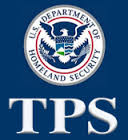Immigration News & Updates eNewsletter
eNewsletter
POSTING DATE: November 6, 2017
Learn More About:
Immigration News & Updates eNewsletter © 2011 - 2017
For questions about U.S. Residency, Green Cards and Immigration Visas, Visit our Website at: www.ImmigrateToday.com or call our office at: (954) 382-5378
Check Out This Cool Stuff For Immigrants....
Immigration
Questions & Answers
This Week's Immigration News
Question: I am here on a H2b visa that expired last year and I just stayed here in Florida. We want to know if you was to help us how early we can put in my immigration papers after me and my US citizen girlfriend get married? I read that you said we had to wait three months and so we was worried about that.
Answer: That is a great question. There is no waiting time required for filing your Residency case once you marry. Your Adjustment of Status package can be filed the next day, as long as you meet the qualifications. The 90 day wait is for immigrants who have only recently entered the U.S.. In that case, a couple should wait for at least three months before filing.
Once your Residency case is filed, it takes about three months to receive your Work Authorization card, then several more weeks to receive your Social Security card. Your marriage Residency Interview will be scheduled about four to six months later, then if all goes well at your interview and the officer is satisfied that your marriage is real, you should receive your Green Card with 15 day to 30 days. See you soon.
Helpful Immigration Tips You Can Use
Immigration How To:
How Do I Renew My Green Card??
Obamacare Enrollment Began November 1st - See If You Qualify!
Regardless of what the Trump Administration wants you to believe, Obamacare, under the Affordable Care Act survives and open enrollment in the Health Insurance Marketplace started last week on November 1, 2017.
Since Trump and the Republicans were not able to repeal the law, they are doing everything possible to keep the public from applying, including reducing the window to apply from three months, down to only six weeks, from November 1 – December 15, 2017 and cutting funds for advertising the program and assisting individuals in enrolling.
Qualifying For Early Naturalization
Eligible U.S. Residents who are spouses of U.S. Citizens can apply for Naturalization early and obtain their U.S. Citizenship in only 2 years and 9 months.
Most U.S. Residents (Green Card holders) must wait for 4 years and 9 months before being eligible to apply for Naturalization. However, qualifying U.S. Residents who are married to U.S. Citizens are eligible to apply 2 years earlier, called “Early Naturalization”.
U.S. Permanent Residents receive a 10-year Green Card, which must be renewed before expiration. The renewal request should be filed with the USCIS within 6 months of expiration.
However, contrary to popular belief, the expiration of your Green Card does not mean that you are no longer a Permanent Resident, it just means that, once the card expires, you will no longer have documentary evidence that you are a U.S. Resident.
Trump Takes Aim At Green Card Lottery After Last Week’s
New York Terrorist Attack
With so much confusion about the Obamacare and who qualifies, even among Americans, many Immigrants simply have no idea that the program continues to exist and most importantly, that they may in fact qualify.
Here’s a quick run-down of the most common classes of Immigrants who currently qualify for the Affordable Care Act (Obamacare):
Lawful permanent and temporary Residents (LPR/Green Card holder)
Asylees
Refugees
Cuban/Haitian entrants
Those Paroled into the U.S.
Conditional entrants granted before 1980
Battered spouses, children, or parents (VAWA)
Victims of trafficking and his or her spouse, child, sibling, or parent
Those Granted Withholding of Deportation or Withholding of Removal
Individuals with non-immigrant status (including worker visas, student visas)
Those with Temporary Protected Status (TPS)
Those with Deferred Enforced Departure (DED)
Those with Deferred Action Status (EXCEPT: Deferred Action for Childhood Arrivals (DACA) isn’t an eligible immigration status for applying for health coverage)
Applicants for Special Immigrant Juvenile Status
Adjustments for Residency status with an approved visa petition
Victims of trafficking visa
The latest terrorist attack was horrific and motivated by evil intent which few of us can even imagine, yet in the midst of this tragedy, rather than reassuring the nation, Trump instead used the attack to blame immigrants and called for an end to the “Diversity Visa Lottery” program.
Trump took the opportunity to rail against the current immigration system, telling reporters that the U.S. should change to a merit-based system, which would virtually eliminate most family-based immigration.
This was just another way for him to tout his enthusiastic support for the RAISE Act now pending in Congress, which will effectively eliminate most family-based sponsorship, cutting immigration levels by 50%. Called the Reforming American Immigration for Strong Employment (RAISE) Act, it would exclude parents of citizens from the current special designation as “immediate relatives” and instead force them to wait in long visa lines, eliminate the yearly diversity (Visa Lottery) program, cut refugee visas by half and tragically eliminate all immigrant visas for adult children of U.S. Citizens and Residents, and all siblings (brothers & sisters) of U.S. Citizens, allowing only spouses and unmarried minor children of citizens and permanent residents to obtain Green Cards.
The RAISE Act will create a “points system”, 0-100, where Immigrants will be awarded points based upon various characteristics, including fluency in English, education level and professional job skills. The question now is how much momentum can Trump create to move the Republican held Congress to quickly pass the Bill. Some experts believe it could happen quickly to give Republicans a “win” before the year-end holidays, while other say that it will be tough for Trump to get all the votes to pass the Bill and the more likely timing will be 2018. Stay tuned…
USCIS Announces New Revised TPS Form
The USCIS released the new edition of the I-821 form for Application for Temporary Protected Status. The new revision date is 10/19/17. Beginning 12/30/2017, the USCIS will only accept the form edition.
Question: have a question for you about my sons immigration. I am a resident and filed for him back in 2012. He is in Jamaica and is 35 and single. After I filed for him, I received a letter from immigration saying the case was approved and then another letter saying there wernt no visa for him yet and he has to wait. I never got anything after that. Can you please tell me what is going on?
Answer: Due to the high demand for Immigrant visas to immigrate to the U.S. and the small number of visas available per year, most relatives sponsored by U.S. Citizens and U.S. Residents must wait in long lines for an Immigrant Visa to be available.
For Adult, single children of U.S. Residents, the waiting line is currently about 7-8 years long. Therefore, once the USCIS approves the I-130 immigration Family Petition and issues the Approval Notice to the sponsoring parent, the case file is sent to the National Visa Center (NVC) and put on a shelf just waiting the many years for a visa to become available. Once the National Visa Center is notified by the Dept of State that a visa will be available soon, the NVC sends the sponsoring U.S. Resident parent a notification for payment of visa processing fees, which begins the final processing phase to prepare the case for the U.S. Consulate which will conduct the Immigrant Visa interview.
Once the interview is complete, Immigrant visa fees must be paid online and the officer sends the adult child a “package” to give the U.S. Immigration officers at the U.S. Port of Entry. Once the adult child enters the U.S. he or she is processed for Residency at the Airport and receives the Green Card in the mail within 30-60 days. The Visa Bulletin website publishes updated dates of visa availability for all family categories. Using the I-130 Approval Notice, there is a date called a “Priority Date” listed. When the Visa Bulletin reaches that date in the appropriate family category, a visa is available for the adult child. The Immigration Visa category for Adult, Single children of U.S. Residents is called “F2B”. Currently, this category has Immigrant visas available for I-130 petitions filed in November of 2010.
Since you filed your son’s case in 2012, he will have a “Priority date” of 2012 and will need to wait at least another several years or so. You can always call our office for free advice about priority dates and the immigrant visa process. You can also check out the Visa Bulletin to see the current Priority Dates by visiting our website at: www.Immigratetoday.com and clicking on the Immigration Newsletter link.
Visit the Dept of State’s Visa Bulletin:
Read more information about family Immigrant Visa waiting lines:
To qualify under this expedited U.S. Citizenship process, a U.S. Resident must fall under what is commonly called the “3/3/3” rule. 1) The U.S. Resident must be married to their U.S. Citizen spouse for at least 3 years and 2) their U.S. Citizen spouse must have been a U.S. Citizen for at least 3 years and finally, the U.S. Resident must have held that status for at least 3 years (really 2 years and 9 months). So, as long as the U.S. Resident meets these requirements and is not only currently married to, but continues to reside in a real marriage with their U.S. Citizen spouse – they can apply for early naturalization.
Once the Green Card is within 6 months of expiration or even when it has actually expired, in order to obtain evidence of Residency, a Permanent Resident must file a renewal request, then make an INFOPASS appointment at your local USCIS Field Office and take the Green Card renewal receipt provided to you by mail from the USCIS in order to obtain a temporary residency sticker on your Green Card. This temporary residency sticker is used as a temporary Green Card until the renewed Green Card is received. It can be used to work, travel, obtain Driver’s License renewal and any other purpose that an actual Green Card would serve.












